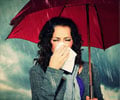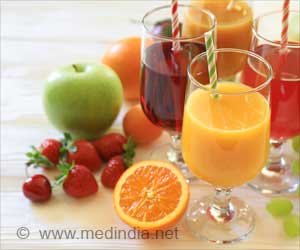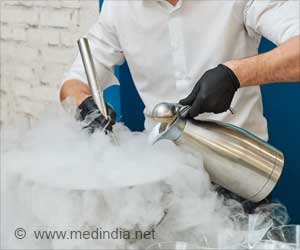- Sip on herbal teas like chamomile and green tea to stay hydrated and promote relaxation and immunity
- Include bitter vegetables and water-rich foods in your diet to combat humidity and maintain hydration
- Stay hydrated with water, watermelon juice, and electrolyte-rich drinks while incorporating probiotics and foods high in essential fatty acids and electrolytes
Let's look at the dietary changes and foods that must be ingested to enjoy the season without jeopardizing our hydration and immunity.
Herbal Teas: Sip Your Way to Hydration and Immunity
Switch out your normal tea with a cup of herbal tea. Drink it regularly to stay hydrated and enhance your immune system. It contains spices such as cinnamon, cloves, and honey.Chamomile tea is an excellent companion during the monsoon season for relieving stress and promoting deep sleep (1✔ ✔Trusted Source
Therapeutic efficacy and safety of chamomile for state anxiety, generalized anxiety disorder, insomnia, and sleep quality: A systematic review and meta-analysis of randomized trials and quasi-randomized trials
Go to source). Because of its calming and soothing properties, it aids in relaxation and stress reduction. It also helps to strengthen the digestive system and fight the common cold.
Although drinking green tea is a good idea all year, it is especially important during the monsoon season. Green tea, which is abundant in antioxidants, helps the body resist disease (2✔ ✔Trusted Source
Beneficial effects of green tea: A literature review
Go to source).
Combatting Humidity: Bitter Vegetables and Water-Rich Foods
Bitter vegetables such as kale, lemon zest, orange zest, and karela will help your body cope with the increased humidity in this weather.Water-rich foods include cucumber, tomatoes, zucchini, apples, watermelon, spinach, melon, strawberries, carrots, and pineapples. Include these foods in your daily diet. Hot and fresh soups are also available. Amla and other astringent foods will help you fight the humidity, while vitamin C will boost your immune system (3✔ ✔Trusted Source
Functional and Nutraceutical Significance of Amla ( Phyllanthus emblica L.): A Review
Go to source).
You may stay hydrated all day with a cup of chicken soup or vegetarian corn soup flavored with ginger, garlic, and black pepper. Fruits such as jamun and plums should be consumed daily. Jamun juice has a sweet, slightly acidic flavor and contains bioactive phytochemicals that help prevent liver issues.
Turmeric, a familiar component in kitchens around the world, is a miraculous plant that should be consumed in all forms all year. Turmeric strengthens your immune system and protects you from infections, as well as having anti-inflammatory properties (4✔ ✔Trusted Source
Anti-Inflammatory Effects of Curcumin in the Inflammatory Diseases: Status, Limitations and Countermeasures
Go to source).
Hydration Heroes: Watermelon Juice and Electrolyte-Rich Drinks
Because of the increased moisture and humidity in the air, the desire to drink water reduces when the weather changes. However, continue to drink 8 to 10 glasses of water every day to stay hydrated.Drinking watermelon juice is another fantastic way to stay hydrated and revitalized during the dreary season. It contains vitamins A, B6, B1, and C, all of which have numerous advantages.
While water is an important source of hydration throughout the year, the monsoon season requires the body to consume additional electrolytes, vitamins, and minerals.
Probiotics for Gut Health and Immunity
Probiotics found in buttermilk curd, rice kanji, and fermented vegetables help the body produce more beneficial bacteria, which strengthen immunity, prevent bloating and acid reflux, and keep you hydrated in this humid weather (5✔ ✔Trusted SourceEfficacy and safety of probiotics in the treatment of irritable bowel syndrome: A systematic review and meta-analysis of randomised clinical trials using ROME IV criteria
Go to source).
Essential Fatty Acids: Strengthening Your Immune Defenses
Instead of drinking milk during the monsoon, try curds or yoghurt to reduce your risk of getting hazardous bacteria. The immune system is modulated by essential fatty acids, which enhance defenses against sickness (6✔ ✔Trusted SourceEssential fatty acids, immune function, and exercise
Go to source). Nuts, salmon, oysters, prawns, flaxseeds, walnuts, chia seeds, pistachios, and other omega-3 fatty acid-rich foods.
Electrolyte-Rich Foods: Replenishing Essential Nutrients
As you sweat, essential electrolytes such as salt, potassium, and magnesium are lost. To replenish electrolytes, eat foods high in electrolytes, such as bananas, coconut water, and homemade lemonade with a sprinkle of salt.Bananas provide the best protection against gastrointestinal diseases during the monsoon season. It contains many digestive aids, as well as vitamin C (ascorbic acid) and retinol, all of which improve immunity.
Staying hydrated is an important part of staying healthy and avoiding bacterial diseases. To keep your electrolytes and toxins in check, drink plenty of water or drinks.
References:
- Therapeutic efficacy and safety of chamomile for state anxiety, generalized anxiety disorder, insomnia, and sleep quality: A systematic review and meta-analysis of randomized trials and quasi-randomized trials - (https://pubmed.ncbi.nlm.nih.gov/31006899/)
- Beneficial effects of green tea: A literature review - (https://www.ncbi.nlm.nih.gov/pmc/articles/PMC2855614/)
- Functional and Nutraceutical Significance of Amla ( Phyllanthus emblica L.): A Review - (https://pubmed.ncbi.nlm.nih.gov/35624683/)
- Anti-Inflammatory Effects of Curcumin in the Inflammatory Diseases: Status, Limitations and Countermeasures - (https://pubmed.ncbi.nlm.nih.gov/34754179/)
- Efficacy and safety of probiotics in the treatment of irritable bowel syndrome: A systematic review and meta-analysis of randomised clinical trials using ROME IV criteria - (https://pubmed.ncbi.nlm.nih.gov/37031468/)
- Essential fatty acids, immune function, and exercise - (https://pubmed.ncbi.nlm.nih.gov/9139751/)
















